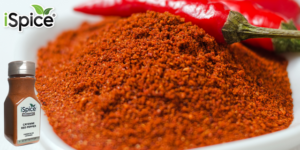 Cayenne Red Pepper is a delicious and hot spice that adds flavor to a wide variety of dishes. You can use it to season grilled chicken, pork, steak, pasta, chili, and more!
Cayenne Red Pepper is a delicious and hot spice that adds flavor to a wide variety of dishes. You can use it to season grilled chicken, pork, steak, pasta, chili, and more!
It is also an effective natural remedy for many ailments. It can help prevent a number of health problems, including high blood pressure and heart disease, as well as reduce the risk of cancer, skin damage, eczema flare-ups, and itchy skin. It is also a good source of Vitamin C, which can help boost your immune system.
Capsaicin, the active compound in cayenne pepper, is believed to have anti-inflammatory properties and can soothe irritated throats. It can also improve digestion by increasing the production of digestive fluids and soothing stomach pain and cramping.
You can also apply cayenne powder to the skin for a variety of benefits, including reducing acne breakouts, promoting smooth, healthy skin, and keeping rashes at bay. It can also reduce inflammation and swelling in the eyes, nose, and mouth and improves circulation.
Make Homemade Cayenne Sauce:
This thin sauce is great for adding a kick of flavor to pizza, sandwiches, and other foods. It is very easy to make and has a delicious spicy flavor that is sure to please.
To make this delicious sauce, simply combine the following ingredients: Cayenne peppers, garlic, white vinegar, salt, and water in a nonreactive medium pot. Bring to a boil, then simmer for 20 minutes. Cool the mixture slightly, then transfer to a blender or food processor and process until smooth. Strain through a fine sieve if desired, then pour into small bottles and store in the refrigerator.
Preparation and Storage:
Before you can use cayenne peppers in your cooking, you need to wash them thoroughly and dry them out before you grind them into powder. You can do this by drying them in the oven or by using a dehydrator. Just be sure to keep the temperature low and check them frequently so that they don’t burn or over dry.
How to Store Cayenne Peppers:
When storing cayenne peppers, it is important that they are stored at room temperature or in the refrigerator to keep them from getting moldy and going bad. It is also best to store whole peppers rather than cut or sliced ones as they will last longer and are more likely to stay fresher.
If you are unsure about when your cayenne peppers will go bad, you can use a digital thermometer to help you monitor their condition. The thermometer will tell you if the peppers are too warm or cold.
It is also a good idea to place the peppers in a zip lock bag or container to prevent them from absorbing too much water, which can increase their rotting process. You can also put them in the freezer if you plan on using them later that month, but it is not recommended for long term storage as the freezing process may break down the nutrients in the peppers.